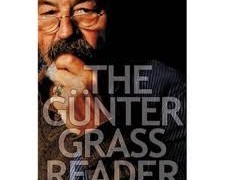Günter Grass, ex-musician, is dead
mainThe novelist who restored living German literature to post-War credibility and a Nobel prize has died at 87. The anti-hero of his breathrough novel, The Tin Drum, is a musician. Grass himself briefly earned his living playing washboard in a jazz trio. One night in a Düsseldorf restaurant, Louis Armstrong joined in (or so Grass claimed in his memoir, Peeling the Onion).
A Grass story ‘The Scarecrows’ was staged as a ballet at the Deutsche Oper, with music by Aribert Reimann.
Grass’s reputation was tarnished in old age by an admission that he had fought in the Waffen-SS in 1944-45. Many felt the confession came far too late.

His politics veered from vague-left to crackpot. Grass likened Germany’s post-Wall reunification to Hitler’s Anschluss with Austria and wrote a bitter anti-Israel rhetoric, accusing it of being a greater nuclear threat than Iran.






Grass was conscripted into the Reich’s Labor Service at age 15, and drafted into the Waffen-SS at 17. This was in 1944 when participation in the Waffen-SS was not voluntary. His error was not mentioning this history as part of the context for his well-known moral objections to war. German artistic movement known as Vergangenheitsbewältigung, roughly translated as “coming to terms with the past.”
He held many unconventional views. He believed that a unified Germany would necessarily resume its role as a belligerent nation-state. He proposed “that the governments of both Iran and Israel allow an international authority free and open inspection of the nuclear potential and capability of both.” In response, Israel declared him persona non grata. He criticized European policy for the treatment of Greece in the European sovereign-debt crisis. In a poem entitled “Europe’s Disgrace”, he accuses Europe of condemning Greece to poverty, a country “whose mind conceived, Europe.”
His critics come predominately from the political right.
The fragmented sentence above should read: His silence was notable since he was part of a German artistic movement known as Vergangenheitsbewältigung, roughly translated as “coming to terms with the past.”
an article from 2006 which neatly sums up the man:
http://www.spiegel.de/kultur/gesellschaft/guenter-grass-der-herr-der-binse-a-431695.html
Perhaps he thought a power already with nuclear weapons was more dangerous than one presumed to be working toward that condition. It’s an argument, though in that case more than Israel would rightly be considered more dangerous — at this point — than Iran.
While Germany has mostly been a friend to Israel since 1948, and while I have many good German friends who are certainly not anti-semitic in any way, the same cannot be said of GG. He, like a significant number of other Germans (and many Europeans, for that matter) look at the strife between Israel and its neighbors and automatically assign the most evil motives to Israel and absolve the Palis and their fellow Muslims of all responsibility. In this way, they can assuage their Jew-hating consciences and, for all intents and purposes, say to themselves. “We Germans (or whatever) were not wrong to have killed these horrible people.” This “conscience” of post WWII Germany turned out to be a true fraud who hid his own Hitlerian guilt for decades until after he had won a Nobel prize, become a literary icon, and become an old man. Perhaps he thought that would make his admission more palatable. It doesn’t and I hope the bastard rots in hell.
This is a wild rant. Grass was a mere boy when he joined the army and judging by “The Tin Drum” and his autobiography (have you read either?) he was never a Hitlerain but rather grew to hate war and the Nazis. It is all too easy to pass judgement over 70 years after the event, seated comfortably in front of a computer screen.